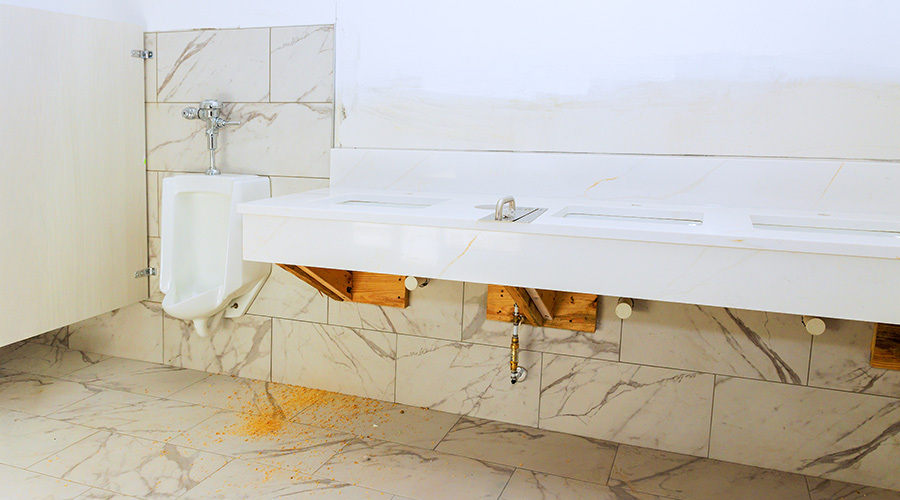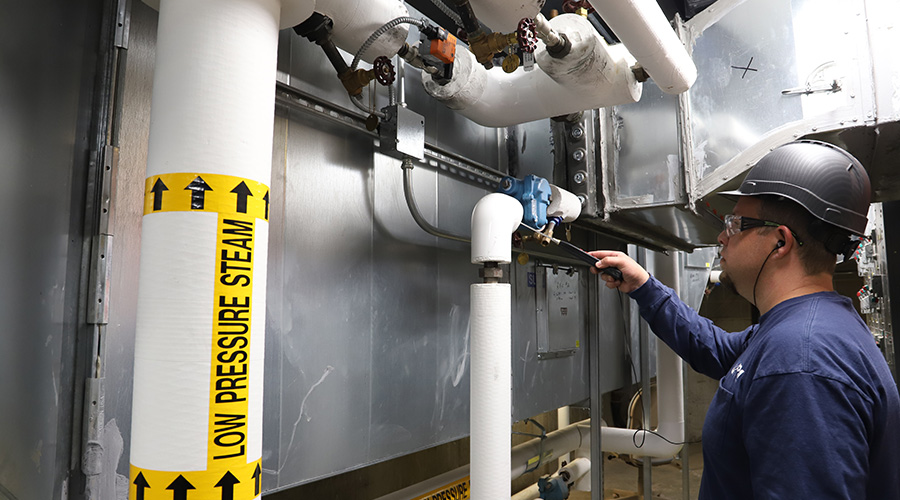At the heart of every healthcare facility is a dedicated group of professionals who work tirelessly to keep the gears turning safely. Facilities managers are often unsung heroes, possessing extensive experience and institutional knowledge that is vital to maintaining a functional and caring environment for patients, caregivers, staff and visitors.
But as time passes, many of these seasoned experts embark on a well-deserved retirement, leaving a void that healthcare executives need to start strategically planning for now.
More than one-half of facility managers are likely to retire by 2030, according to 2019 research by the International Facility Management Association (IFMA). But many healthcare organizations already face facility management talent shortages. A more recent survey found that 66 percent of facility managers and staff left or considered leaving their jobs in 2022 as the pandemic created more pressure on every role within healthcare organizations. This recent loss of institutional knowledge, coupled with the forthcoming “silver tsunami” might already hinder planned projects and leave healthcare executives uncertain about how to go forward with diminished teams.
No sector is immune to staffing challenges. Almost one-half of U.S. companies cannot fill open roles, according to a March 2023 Harris Poll. But the staff shortage is more critical in healthcare, where specialized expertise is required to conduct day-to-day functions.
Healthcare systems must prioritize planning for future facilities management changes, including starting candidate searches earlier, using technology to automate facility management tasks and expand facility management capacity and prioritizing training and development.
Understanding real value
From maintaining sterile environments and managing infection control plans to meticulously documenting maintenance and inspections, facility managers contribute to the wellbeing of patients and the safety of everyone within the facility. At the core of their duties lies the responsibility of meeting facilities accreditation standards, which continue to rapidly evolve. Although the Joint Commission has eliminated 14 percent of its standards to streamline the accreditation process, the remaining standards require highly specialized knowledge of the healthcare environment.
Failure to stay abreast of and meet these changes can be costly financially and in terms of patient and caregiver trust. Managers are not just caretakers of buildings. They are creators of a safe, accessible and inviting environment of care that is as critical to attracting healthcare professionals and other staff as it is to provide the best possible patient and human experience.
Human-centric approach
Replacing a seasoned healthcare facility manager is not as simple as hiring an experienced manager from a different industry. These are specialized roles that require investments in training and development. There is added pressure on healthcare executives and facility managers teams to get it right, with managers serving an essential function in patient experience and attracting healthcare professionals to the field by creating comfortable, collaborative healing environments.
Fortunately, a number of proven strategies exist to nurture the new generation of facility management talent and ensure future continuity. They include:
Cultivating a culture of lifelong training and development. Recruiting candidates from outside the healthcare sector might seem challenging, but it is a priority to meet upcoming labor shortages. One emerging approach is to eliminate or reduce the paper ceiling for facility managers and other healthcare roles, eliminating degree and credential requirements to instead focus on applicable skills.
To make this approach work, healthcare organizations need external partners to ensure they uphold relevant standards and evolve with industry best practices. They also must commit to on-the-job training throughout an employee’s tenure. Skills development, ongoing training and change management support all work together to create more resilient teams, mitigate the risk of employee departures, improve retention and prepare team members to step into more senior roles, which will go a long way toward helping employees see real career pathways in the organization and attracting new talent.
Building a robust technology platform. To minimize disruptions caused by personnel changes, leading healthcare organizations are turning to technology. The goal is not to replace the human touch but to support the facility management teams in their invaluable work and expand their capacity as an organization’s care delivery network evolves.
Facility management technologies, combined with modern smart building management systems, automate routine facility management tasks and support remote monitoring of systems, enabling managers to do more without adding staff while ensuring that facilities knowledge is documented and shared. Technology is also essential in capturing building performance data, which managers can use to benchmark facility performance and reduce cost.
Developing partnerships to strengthen the team. Navigating the complexities of healthcare facilities management is no easy feat, which is the reason some organizations seek support from experienced partners that can help develop facility management capacity and effectiveness. The right partner can: augment the facility management team with full or hybrid outsourced managed services; identify and implement appropriate technology solutions; support training and development; drive compliance; and keep teams aligned to key performance standards.
The challenges facing healthcare facilities teams are real but not insurmountable. By embracing technology, nurturing the next generation of facility managers and forging partnerships with facilities management experts, healthcare organizations can ensure that their legacy of excellence continues.
Alison Flynn Gaffney, FACHE, is president of healthcare with JLL.

 Biofilm 'Life Raft' Changes C. Auris Risk
Biofilm 'Life Raft' Changes C. Auris Risk How Healthcare Restrooms Are Rethinking Water Efficiency
How Healthcare Restrooms Are Rethinking Water Efficiency Northwell Health Finds Energy Savings in Steam Systems
Northwell Health Finds Energy Savings in Steam Systems The Difference Between Cleaning, Sanitizing and Disinfecting
The Difference Between Cleaning, Sanitizing and Disinfecting Jupiter Medical Center Falls Victim to Third-Party Data Breach
Jupiter Medical Center Falls Victim to Third-Party Data Breach